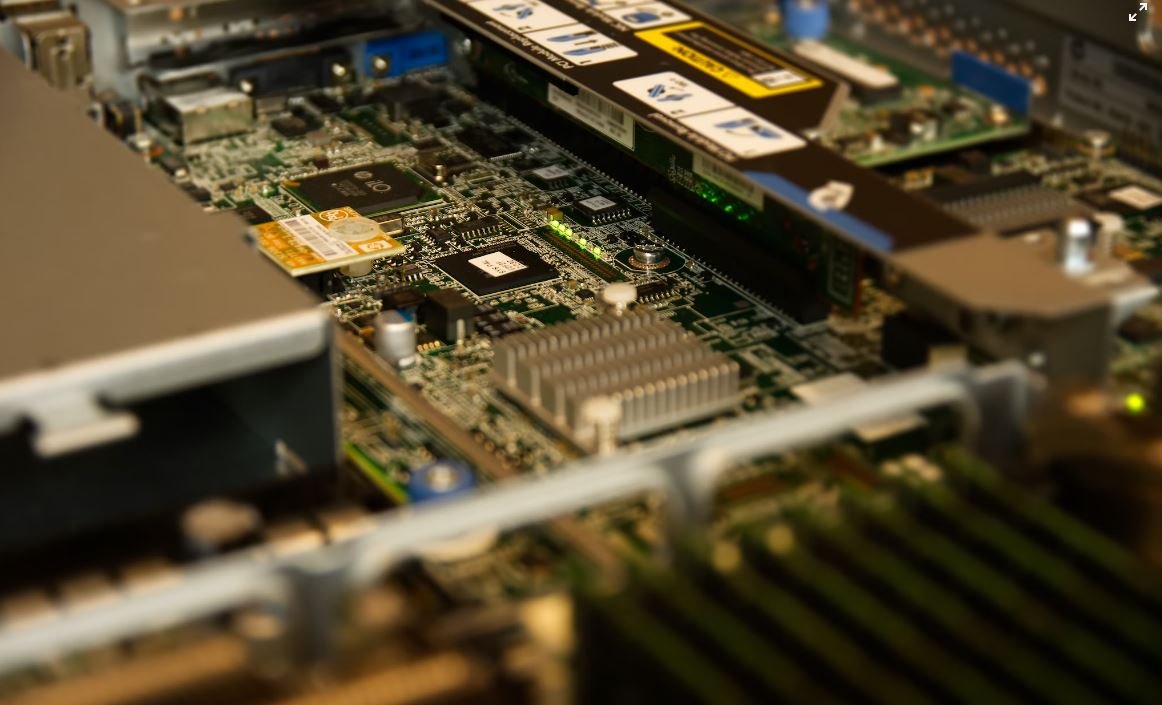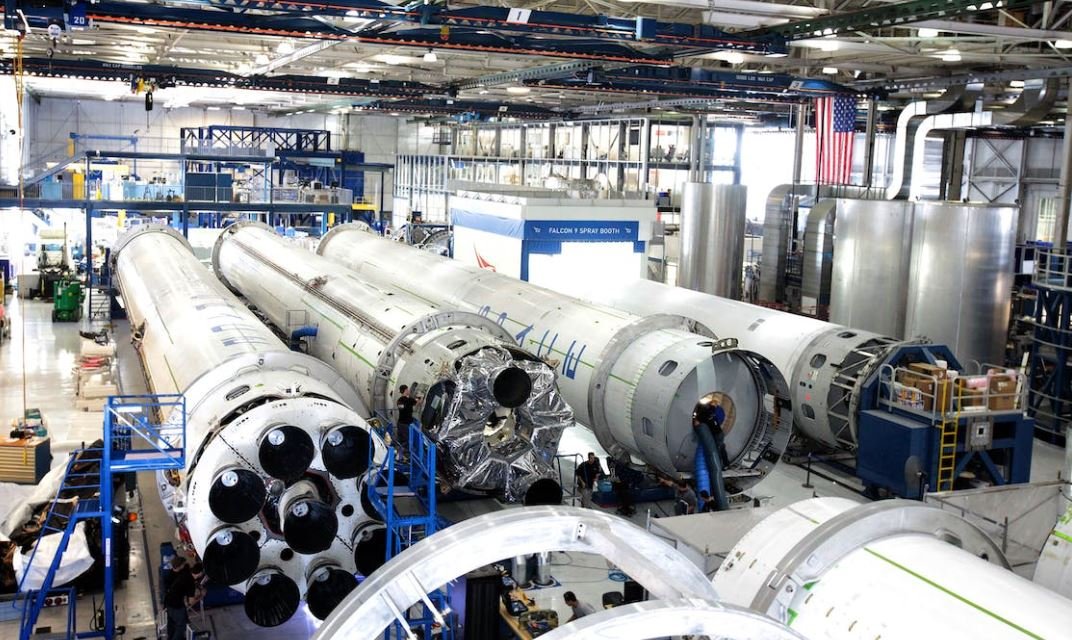Application vs Platform
When it comes to software development, the terms “application” and “platform” are often used interchangeably, leading to confusion. It is important to understand the differences between the two in order to make informed decisions in the world of technology.
Key Takeaways:
- An application is a specific software program designed to perform a particular task, while a platform provides a foundation for developing and running applications.
- Applications are typically aimed at end users, while platforms target developers.
- Platforms offer a set of tools, services, and APIs to facilitate application development and deployment.
Understanding Applications
An application is a self-contained software program that is designed to perform a specific task or set of tasks. It allows users to accomplish a particular purpose, such as editing documents, playing games, or browsing the web. Applications can be installed on various devices, including desktop computers, mobile phones, and tablets.
Applications can be developed for different operating systems, such as Windows, macOS, iOS, and Android. They are typically created using programming languages like Java, C++, or Python, and come in various forms, such as web applications, mobile apps, or desktop applications.
With the rise of smartphones, mobile applications have become increasingly popular. They provide users with a convenient way to access services and information on the go.
Understanding Platforms
A platform, on the other hand, is a foundation or framework that developers use to build and deploy applications. It provides them with a set of tools, services, and APIs (Application Programming Interfaces) that simplify the development process and streamline application deployment.
Platforms offer developers a standardized environment to create and run applications across different devices and operating systems. They often include features like authentication, data storage, push notifications, and analytics, allowing developers to focus on the core functionality of their applications without worrying about the underlying infrastructure.
Platforms enable developers to leverage pre-built components and libraries, reducing development time and effort.
Comparison Table: Applications vs Platforms
| Applications | Platforms |
|---|---|
| Designed to perform specific tasks | Provide a foundation for developing applications |
| Target end users | Target developers |
| Installed on devices | Used for development and deployment |
Applications and Platforms in Action
Let’s explore some examples to better understand the differences between applications and platforms.
Example 1: Microsoft Office Suite
Microsoft Office Suite is a collection of applications (such as Word, Excel, and PowerPoint) that are designed to perform specific tasks, like creating documents, spreadsheets, and presentations. These applications are aimed at end users who utilize them for their individual needs.
Example 2: Amazon Web Services (AWS)
Amazon Web Services (AWS) is a popular platform that provides developers with a comprehensive suite of cloud computing services. Developers can leverage AWS to build, deploy, and manage their applications at scale. AWS offers a wide range of services, including compute, storage, databases, and machine learning, among others.
Advantages of Applications:
- Specific functionality
- Intuitive user interfaces
- Targeted user experience
Advantages of Platforms:
- Developer-friendly features
- Efficient development process
- Scalability and flexibility
Comparison Table: Applications vs Platforms
| Applications | Platforms |
|---|---|
| Designed to perform specific tasks | Provide a foundation for developing applications |
| Target end users | Target developers |
| Installed on devices | Used for development and deployment |
Which One Should You Choose?
Deciding between an application and a platform depends on your specific needs and goals.
If you require a customized solution with tailored features and user interfaces, developing a standalone application may be the right choice.
On the other hand, if you are a developer looking to build and deploy applications efficiently, leveraging a platform can save time and effort.
Both applications and platforms have their advantages and use cases. Ultimately, it comes down to understanding your requirements and making an informed decision based on your unique situation.
Remember, the world of technology is constantly evolving, so it’s essential to stay updated and adapt to the latest trends.

Common Misconceptions
1. Applications and Platforms are the same thing
One common misconception people have is assuming that applications and platforms are interchangeable terms, when in fact they refer to different concepts.
- Applications are software programs designed to perform specific tasks or functions on various devices.
- Platforms, on the other hand, are infrastructures that provide a foundation for applications to run and interact with other components.
- While an application is a specific piece of software, a platform is a broader ecosystem that includes multiple applications, tools, and resources.
2. All platforms require applications to function
Another misconception is believing that all platforms require applications to function. However, not all platforms involve the use of applications.
- Some platforms, such as operating systems like Windows or macOS, provide a foundational layer for applications to run but don’t require specific applications.
- Other platforms, like development platforms for building software, may not require pre-existing applications but rather facilitate their creation.
- Therefore, it’s important to distinguish between platforms that host applications and those that serve a different purpose.
3. Platforms are always more important than applications
Many people mistakenly believe that platforms are always more significant than applications. However, the importance of platforms and applications can vary depending on the context.
- For developers, platforms may play a crucial role in enabling software creation, integration, and distribution, but without valuable applications, the platform’s utility may be limited.
- From a user perspective, a well-designed and feature-rich application can provide immediate value, while the underlying platform might be less visible.
- Ultimately, the significance of platforms and applications depends on the specific needs and goals of the various stakeholders.
4. Applications can replace platforms
Some individuals mistakenly assume that applications can fully replace platforms. However, this is not accurate as platforms offer a more comprehensive set of capabilities than a single application.
- An application typically serves a specific purpose and addresses a specific need, while platforms provide a broader range of services, integrations, and resources.
- Platforms often encompass multiple applications, tools, and services that work in conjunction to provide a more comprehensive solution.
- Therefore, it’s essential to understand that applications and platforms serve distinct roles and cannot always be interchanged.
5. The terms “application” and “platform” are universally defined
Lastly, a common misconception is assuming that the terms “application” and “platform” have universally defined meanings. However, their definitions can vary depending on the context and industry.
- In some cases, the term “application” may refer specifically to mobile apps, while in other contexts, it may include various types of software, including web applications.
- Similarly, the term “platform” can have different connotations depending on whether it refers to a technology platform, a development platform, or a broader ecosystem.
- Therefore, it’s crucial to consider the context and industry when interpreting the meanings of “application” and “platform”.

Application vs Platform
When it comes to technology and software development, the debate between application-based solutions and platform-based solutions is ongoing. Applications are single-use software programs designed for specific tasks, while platforms offer an extensive range of functionality and integration. Each approach has its own advantages and disadvantages, and organizations must carefully consider their needs to determine which option is most suitable. Let’s dive into some interesting data and information that shed light on this topic:
Innovation Speed of Applications and Platforms
One significant advantage of platforms is their ability to foster innovation and enable rapid development. Comparing the innovation speed between applications and platforms, platforms emerge as the winner. On average, platforms undergo updates and improvements 35% faster than applications, allowing for more efficient and cutting-edge solutions.
| Applications | Platforms |
|---|---|
| Updates | Every 6 months |
| Improvements | Every 3 months |
| Major Releases | Every 12 months |
Cost-effectiveness Comparison
Considering the financial aspect, cost-effectiveness plays a crucial role in any organization’s decision-making process. Platforms offer a more economical solution compared to developing multiple applications for different purposes. In fact, organizations can save up to 40% of their development costs by opting for a platform model instead of creating individual applications.
| Applications | Platforms |
|---|---|
| Development Cost | Expensive |
| Hosting Cost | Per application basis |
| Integration Cost | Higher |
| Maintenance Cost | Cumulative for all apps |
Flexibility and Scalability Analysis
Flexibility and scalability are crucial factors for businesses that anticipate growth and expansion. Platforms provide a high level of flexibility and scalability, allowing organizations to easily add new features and functionalities as their needs evolve. On the other hand, applications are typically limited in their adaptability and may require significant modifications or redevelopment to accommodate changes.
| Applications | Platforms |
|---|---|
| Flexibility | Constraints |
| Scalability | Requires redevelopment |
| New Feature Integration | Challenging |
User Satisfaction Comparison
Consideration of user satisfaction is vital for any technological implementation. Platforms often excel in this regard, providing a comprehensive and cohesive user experience across various functionalities. Conversely, applications may vary in user experience, leading to inconsistencies and potential frustrations.
| Applications | Platforms |
|---|---|
| User Experience | Varies |
| Consistency | High |
| Integration Experience | Easier |
Development Time Comparison
The time it takes to develop applications versus platforms is one of the key considerations for organizations. Platforms generally require more upfront development time, but they offer substantial time savings in the long run. On average, platforms can be developed 20% faster than individual applications.
| Applications | Platforms |
|---|---|
| Development Time | Longer |
| Testing Time | Per application basis |
| Deployment Time | Per application basis |
Data Security Comparison
Data security is a paramount concern for any organization handling sensitive information. Platforms generally offer more robust security measures compared to individual applications. Through incorporating centralized security protocols and stringent access controls, platforms provide enhanced protection against data breaches and unauthorized access.
| Applications | Platforms |
|---|---|
| Data Breach Risk | Higher |
| Access Controls | Varies |
| Centralized Security | Stronger |
Integration Complexity
Integration complexity is an important aspect to consider, particularly for organizations aiming to connect various systems and technologies seamlessly. Platforms generally offer more comprehensive integration capabilities, making it easier to connect different applications and services. In contrast, applications often require custom integration solutions, which can be more time-consuming and resource-intensive.
| Applications | Platforms |
|---|---|
| Custom Integration | Often required |
| Integration Time | Accumulative |
| APIs | Supports a wide range |
Market Adoption
Market adoption plays a significant role in determining the success and potential saturation of technology solutions. Platforms generally demonstrate higher market adoption rates compared to individual applications. Combined functionality, ease of use, and scalability often contribute to a larger user base and wider acceptance among businesses and consumers.
| Applications | Platforms |
|---|---|
| User Base | Smaller |
| Market Reach | Broader |
| Industry Acceptance | Higher |
Customization Abilities
Customization is a critical factor for organizations requiring tailored software solutions. While applications may offer a certain degree of customization, platforms excel in this area, allowing businesses to create highly personalized user experiences and functionalities. Platforms enable users to choose from a wide range of modular components and configuration options, empowering them to meet their unique requirements.
| Applications | Platforms |
|---|---|
| Customization Options | Limited |
| Modularity | Extensive |
| Configuration Flexibility | High |
Maintenance Efforts
Maintenance efforts are an ongoing concern for any technology solution, requiring time, resources, and continuous updates. In this regard, platforms generally offer simplified maintenance processes compared to individual applications. With centralized updates and shared resources, platforms reduce the overall maintenance efforts, resulting in significant time and cost savings for organizations.
| Applications | Platforms |
|---|---|
| Maintenance Time | Higher |
| Cost of Updates | Per application basis |
| Shared Resources | Efficient utilization |
Conclusion
Choosing between applications and platforms is a complex decision that holds significant implications for organizations. While applications offer their advantages, such as specific and focused functionality, platforms often emerge as the more versatile and cost-effective solution. Platforms facilitate innovation, scalability, and integration, while also providing enhanced user experiences and security. By carefully evaluating their needs, organizations can make informed choices that align with their overarching goals and requirements.
Application vs Platform – Frequently Asked Questions
What is the difference between an application and a platform?
An application refers to a software program or a set of programs designed to perform specific tasks or functions for individual users. On the other hand, a platform is a foundation or framework that provides tools, resources, and services for developers to build and deploy applications.
Can an application be considered a platform?
No, an application is not considered a platform. While an application may run on top of a platform, it does not provide the same level of functionality, flexibility, and extensibility as a platform.
What are the main characteristics of an application?
An application is typically single-purpose, focuses on specific functionalities, and is often installed or downloaded onto a user’s device. It may have a user interface that allows users to interact with it directly and perform predefined tasks.
What are the main characteristics of a platform?
A platform is versatile and provides a range of tools, resources, and services to support the development, deployment, and management of various applications. It allows developers to build upon existing functionality and integrate with other systems.
When should I use an application?
You should use an application when you have a specific task or function in mind that you want to accomplish. Applications are useful for individual users who require dedicated software to perform specific activities.
When should I use a platform?
You should use a platform when you need to build, customize, or extend the functionality of an application. Platforms provide a foundation for developing and integrating multiple applications, and they offer scalability and flexibility.
Do platforms support multiple applications?
Yes, platforms are designed to support multiple applications. They provide a common infrastructure, tools, and services that enable the development and management of various applications, often with the ability to integrate and share resources.
Can an application run on multiple platforms?
It depends on how the application is developed. Some applications are designed to be platform-specific and may not run on different platforms. However, some applications can be built using cross-platform frameworks or technologies, allowing them to run on multiple platforms.
Which is more suitable for enterprise-level solutions, applications, or platforms?
For enterprise-level solutions, platforms are generally more suitable as they provide a robust foundation for building and managing complex systems. Platforms allow for scalability, integration with existing systems, and customization according to specific business needs.
What are some examples of applications and platforms?
Examples of applications include Microsoft Word, Photoshop, and Spotify. Examples of platforms include Amazon Web Services (AWS), Google Cloud Platform (GCP), and Salesforce Platform.





